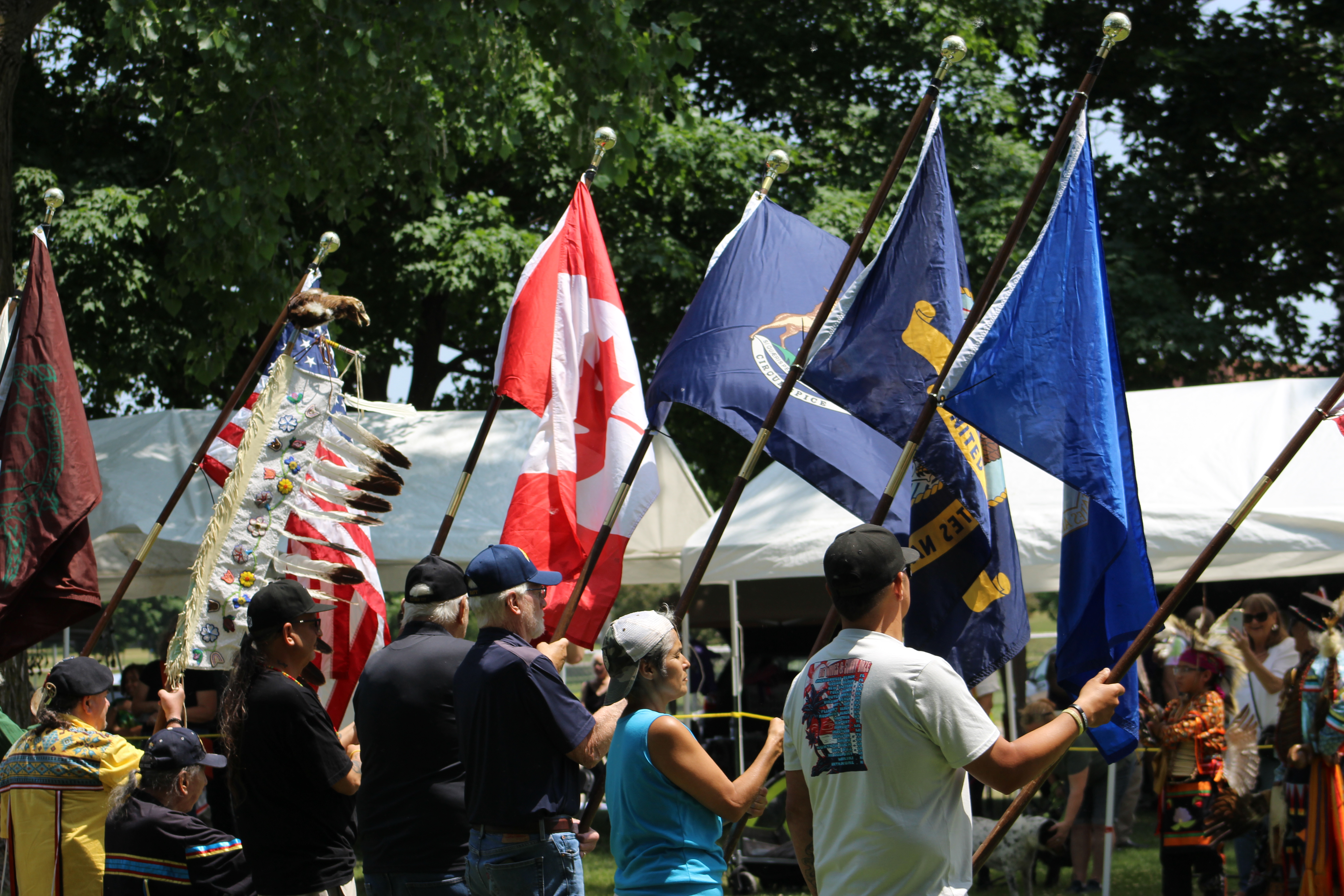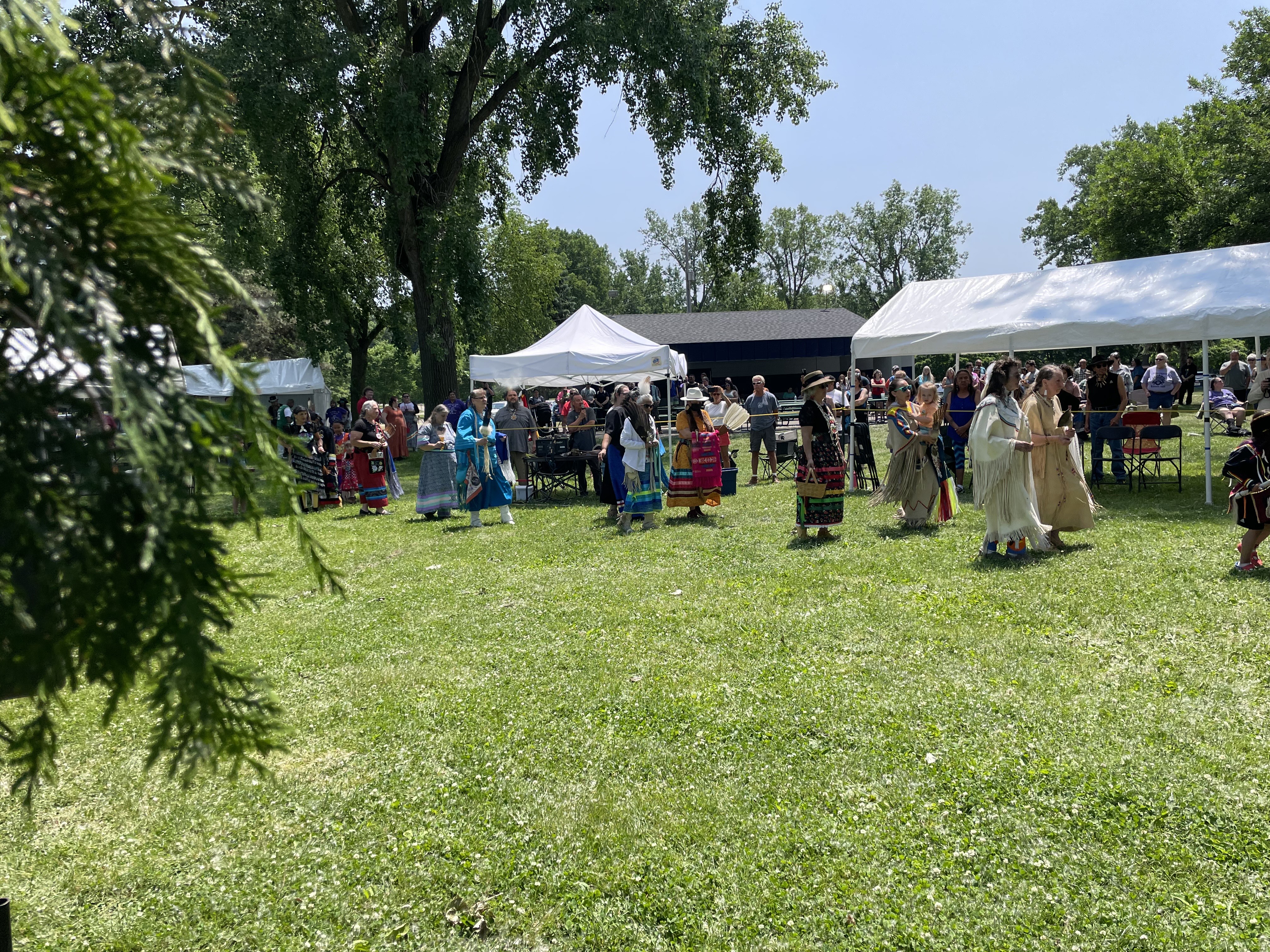
- Details
- By Levi Rickert
GRAND RAPIDS, Mich — Veterans carried in numerous flags representing the United States, Canada, branches of the U.S. military and prisoners of war and those missing in action on Saturday at the 43rd “Homecoming of the Three Fires” Powwow along the shores of the Owashtanong, known now as the Grand River, at Riverside Park just north of downtown Grand Rapids, Mich.
By conincidence, Saturday was also Flag Day in the United States.
https://www.nativenewsonline.net/currents/photographs-of-the-homecoming-of-the-three-fires-powwow-2#sigProIdb59cc25547
The Three Fires powwow is named for the three tribes, Ojibwe (Chippewa), Odawa (Ottawa), and Bodéwadmi (Potawaomi) that made what is now Michigan their home before the arrival of Europeans. Today thousands of Native Ameircans, who live in West Michigan, are still part of the three tribes that are referred to as the People of the Three Fires.
The two-day powwow features drumming and dancing in the dance arena. Various booths sell Native American fare, such as Indian tacos, fry bread, wild rice soup, and rainbow trout. Also, vendors sell Native American items, such as black ash baskets, beaded jewelry and ribbon skirts.

The powwow is sponsored by the Grand River Band of Ottawa Indians, state recognized tribe, located in Grand Rapids. Co-sponsors are the Match-E-Be-Nash-She-Wish Band of Pottawatomi Indians of Michigan (Gun Lake Tribe) and the City of Grand Rapids.
The Homecoming of the Three Fires continues on Sunday, with grand entry beginning at 12 noon and ends at 5 pm.
Photos by Levi Rickert.
More Stories Like This
Native News Weekly (August 25, 2024): D.C. BriefsNative Bidaské: The Illusion of Freedom and the Myth of America 250, Leonard Peltier Speaks Out
Monday Morning (March 2, 2026): Articles You May Have Missed This Past Weekend
Native News Weekly (March 1, 2026): D.C. Briefs
Scope Narrowed, Report Withheld: Questions Mount Over Michigan Boarding School Study
Help us defend tribal sovereignty.
At Native News Online, our mission is rooted in telling the stories that strengthen sovereignty and uplift Indigenous voices — not just at year’s end, but every single day.
Because of your generosity last year, we were able to keep our reporters on the ground in tribal communities, at national gatherings and in the halls of Congress — covering the issues that matter most to Indian Country: sovereignty, culture, education, health and economic opportunity.
That support sustained us through a tough year in 2025. Now, as we look to the year ahead, we need your help right now to ensure warrior journalism remains strong — reporting that defends tribal sovereignty, amplifies Native truth, and holds power accountable.
 The stakes couldn't be higher. Your support keeps Native voices heard, Native stories told and Native sovereignty defended.
The stakes couldn't be higher. Your support keeps Native voices heard, Native stories told and Native sovereignty defended.
Stand with Warrior Journalism today.
Levi Rickert (Potawatomi), Editor & Publisher



